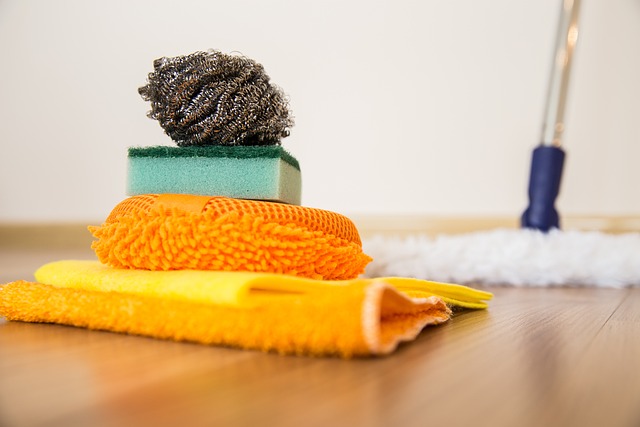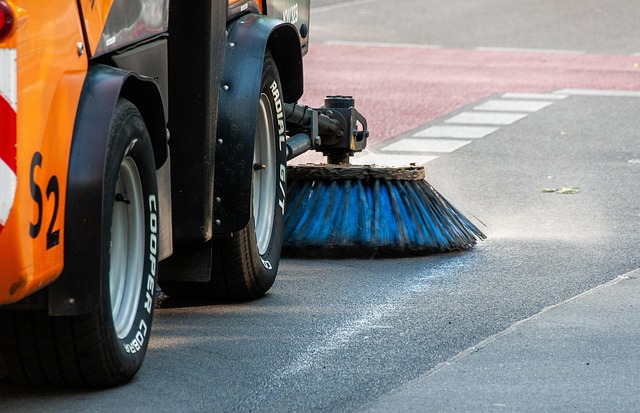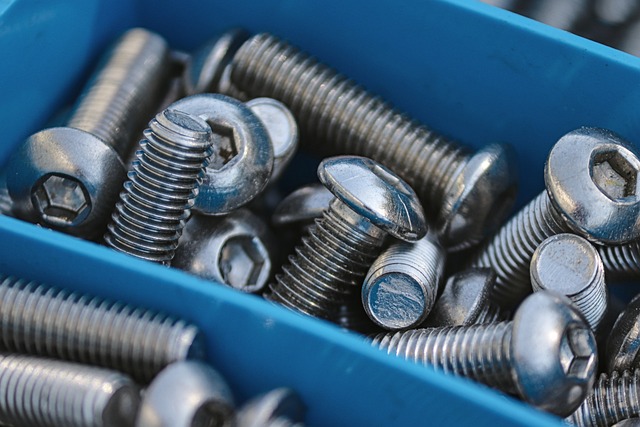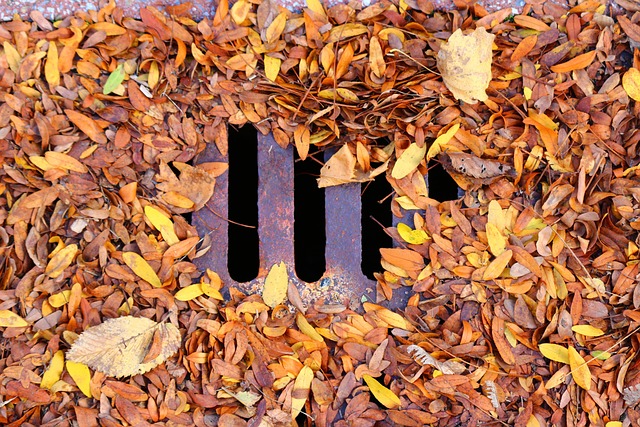This text explores eco-friendly methods for tackling DIY clogged drains, emphasizing the importance of understanding and caring for septic systems. It highlights vulnerabilities like grease buildup, tree roots, and foreign objects causing blockages in drain lines and tank inlets. The article promotes regular maintenance, inspections, and natural solutions like baking soda, vinegar, and enzymes to prevent clogs. It recommends specific DIY techniques, including a baking soda and vinegar mixture, using a plumber's snake for stubborn cases. While plungers are useful, it suggests professional help for persistent clogs indicating more severe plumbing issues.
In today’s world, understanding our plumbing systems is crucial, especially when it comes to septic safety. Septic systems, vital for off-grid living and rural homes, face vulnerabilities from common issues like clogged drains. This article guides you through the intricacies of maintaining these systems naturally. We explore the power of enzymes in Drain cleaning, offering DIY solutions for unclogging, including baking soda and vinegar methods. Learn when to avoid a plunger and opt for alternative tools, and when it’s time to call a plumber for persistent problems.
- Understanding Septic Systems and Their Vulnerabilities
- The Role of Natural Enzymes in Drain Cleaning
- DIY Solutions for Clogged Drains: A Step-by-Step Guide
- Effective Yet Safe: Baking Soda and Vinegar for Unclogging
- Alternative Tools for Plunger-Resistant Blockages
- When to Call a Plumber: Professional Intervention for Persistent Issues
Understanding Septic Systems and Their Vulnerabilities

Septic systems are an essential part of many homes, particularly in rural areas, providing a sustainable and eco-friendly way to manage wastewater. However, they can be delicate ecosystems with specific maintenance requirements. Understanding how these systems work is crucial for preventing common issues like clogs and leaks. Septic tanks function as a biological treatment plant, where beneficial bacteria break down organic matter from household waste into less harmful compounds that can safely enter the soil. This natural process relies on proper balance and care.
One of the primary vulnerabilities is blockages in the drain lines or tank inlet, which can hinder the passage of wastewater and disrupt the bacterial activity. Common culprits include grease buildup, tree roots infiltrating pipes, and foreign objects mistakenly flushed down the toilet or poured down the drains. Homeowners should be mindful of what they flush or pour to avoid these issues. Natural remedies like baking soda and vinegar can effectively clean pipes and unclog drains as a DIY solution, avoiding the need for harsh chemicals or costly plumber visits. Tools like plungers and plumber’s snakes are also useful for minor drain clogs. Regular maintenance, including periodic cleaning and inspection, is key to keeping septic systems functioning optimally without relying heavily on professional services.
The Role of Natural Enzymes in Drain Cleaning

Natural enzymes play a significant role in DIY clogged drains solutions, offering an eco-friendly alternative to harsh chemical cleaners. These biological catalysts are capable of breaking down organic matter that often causes drain clogs, such as grease, hair, and food particles. By introducing specific enzyme-based products into your drain cleaning routine, you can effectively unclog pipes without resorting to a plunger or plumber’s snake.
Enzymes like proteases, amylases, and lipases are powerful tools for natural drain cleaning. Proteases target protein-based substances, while amylases break down carbohydrates. Lipases, on the other hand, tackle grease and oil buildup, which are common culprits in clogged drains. Unlike traditional chemical unclogging methods that might leave behind harmful residues, natural enzymes biodegrade into water and carbon dioxide, making them safe for both your pipes and the environment. So, before reaching for a plumber’s services or harsh chemicals, consider trying a DIY approach with baking soda and vinegar as a base, boosted by enzyme-rich drain cleaning products.
DIY Solutions for Clogged Drains: A Step-by-Step Guide

Uncloggings drains can be a common household issue, but before reaching for chemical cleaners, consider a more natural approach. DIY solutions offer an eco-friendly and cost-effective way to tackle clogged drains without putting your family or the environment at risk. One popular method combines baking soda and vinegar—a powerful duo that works as a natural cleaner and deodorizer. To use this technique, pour 1/2 cup of baking soda down the drain followed by 1 cup of white vinegar. The mixture will fizz and bubble, helping to break up any obstructions. Leave it for about 30 minutes, then flush with hot water.
If the above method doesn’t clear your drain, a plumber’s snake—a flexible metal tool—can be an effective DIY solution. Feed the snake into the drain and twist as you push it through, aiming to dislodge whatever is causing the clog. For more stubborn clogs, try using both the baking soda/vinegar combination and the snake before considering professional help or reaching for harsh chemical cleaners.
Effective Yet Safe: Baking Soda and Vinegar for Unclogging

When it comes to DIY clogged drain solutions, a combination of baking soda and vinegar is both effective and safe for your pipes. This natural unclogging duo works by creating a chemical reaction that can dissolve hair, soap scum, and other common drain obstructions. To use this method, pour 1/2 cup of baking soda down the drain followed by 1 cup of white vinegar. The mixture will fizz vigorously, helping to break up the clog. After waiting for a few minutes, flush the drain with hot water.
If the initial treatment doesn’t clear the blockage, you can try using a plumber’s snake or plunger to manually remove any remaining debris. Unlike harsh chemical drain cleaners, baking soda and vinegar are gentle on pipes and won’t cause damage or leave harmful residues. Plus, they’re readily available and cost-effective, making them ideal solutions for regular drain cleaning without the need for a professional plumber.
Alternative Tools for Plunger-Resistant Blockages

When traditional methods like a plunger fail to clear stubborn drain blockages, it’s time to explore alternative tools for DIY clogged drains. One effective and natural unclogging solution involves a mixture of baking soda and vinegar. Pouring a generous amount of baking soda down the drain followed by white vinegar can create a foaming reaction that helps dislodge the blockage. This method is an eco-friendly alternative to harsh chemical drain cleaners and can be just as powerful.
For more persistent clogs, consider investing in a plumber’s snake—a flexible metal cable that can be threaded down the drain to break up or retrieve obstructions. This tool is particularly useful for navigating tight turns in plumbing lines. While it might require some physical effort, using a plumber’s snake can often eliminate the need for a professional plumber’s visit and the associated costs. Natural unclogging methods not only promote septic safety but also allow you to tackle minor drain issues on your own terms.
When to Call a Plumber: Professional Intervention for Persistent Issues

If your initial attempts to unclog drains using DIY methods like a plunger, baking soda and vinegar mixtures, or plumber’s snakes prove unsuccessful, it’s time to consider professional intervention. Persistent clogs can be signs of more serious issues within your plumbing system—issues that require expert knowledge and equipment to diagnose and resolve safely and effectively.
While natural unclogging solutions are great for minor blockages, they may not address the root cause. A plumber can assess the situation, identify any underlying problems like broken pipes, severe buildup, or tree roots infiltrating your drains, and provide long-lasting solutions. Don’t let persistent clogs go unnoticed; calling a professional is a smart move to ensure septic safety and maintain the health of your plumbing system.






